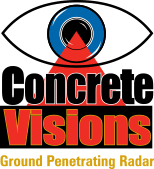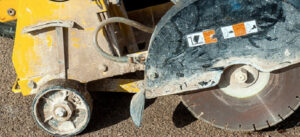While concrete is renowned for being a durable, long-lasting material, anyone who has driven on the roads in a major American city knows that as durable as it is, it doesn’t last forever. Over time, we begin to see concrete deterioration, particularly under certain environmental and installation conditions that can worsen the problem. Many builders are beginning to realize the importance of repairing our infrastructure, including the concrete used in so much of our modern world. That said, we need to know why this is happening at all if we want to prevent it from occurring in the future. Here are some common reasons concrete deterioration may happen.
Chemical Exposure
Once concrete is exposed to chemicals, you can expect all kinds of damage. Erosion, chemical penetration, and many other threats are going to become possible. You may not think chemicals are likely, but there are plenty of possibilities where chemicals may cause concrete deterioration:
- Antifreeze used during the winter.
- Cleaning agents.
- Vehicles leaking oil or other fluids.
- Industrial areas leaking.
- Paint / graffiti.
- Accidents.
- Natural solvents, like acid rain.
Weather Conditions
Inclement weather, especially anything involving water, is one of the number one causes of concrete deterioration. This is primarily due to the freeze-thaw cycle, which causes water to freeze, then expand by up to 9%. When this happens, water can get into cracks and crevices in concrete, freezes and expands, and then can cause concrete to break. This same effect can happen with concrete foundations, too, and not just pavement on the road.
Structural Issues
Once concrete or its reinforcing steel begins to degrade, it can handle much less stress than normal. That means that the stresses that were accounted for when the concrete was installed may now be too much due to concrete deterioration. This can be exacerbated by additional stress, like adding new levels to a building or leaving heavy machinery or building materials on top of the concrete. That damage may result in scaling, cracking, or spalling.
Faulty Installation
What we control most when it comes to concrete deterioration is the installation of our concrete. All of these problems can be made worse if the concrete was installed improperly. If the concrete isn’t mixed right, sets poorly, or is installed poorly for other reasons, this can result in rebar dissolving or cracking in your concrete. To avoid concrete deterioration at rates quicker than you’d expect, make sure you work with a qualified installer.
Concrete Visions Will Get The Job Done Right
Concrete Visions has been working with clients for over 25 years. Our G&M Services installers are certified with the industry’s major firestop product manufacturers. As part of our firestop service, we can assess abnormal field conditions and, with the manufacturer’s technical support assistance, provide engineering judgments in a timely fashion to comply with contract specifications. Our Field Mechanics undergo ongoing training, including mandatory monthly safety meetings, weekly Toolbox Talks where safety and equipment information is shred, and trainings on safe work standards and safety best practices.

